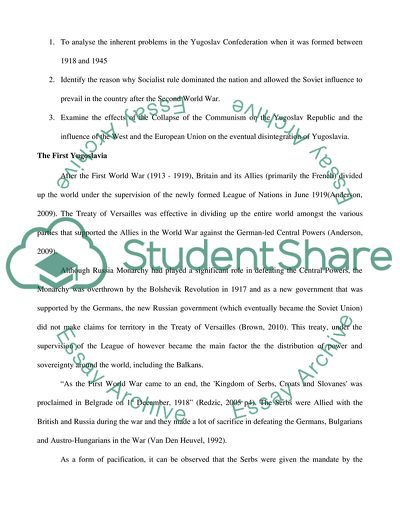Cite this document
(Was the Collapse of Yugoslavia Inevitable Coursework, n.d.)
Was the Collapse of Yugoslavia Inevitable Coursework. Retrieved from https://studentshare.org/history/1761756-was-the-collapse-of-yugoslavia-inevitable
Was the Collapse of Yugoslavia Inevitable Coursework. Retrieved from https://studentshare.org/history/1761756-was-the-collapse-of-yugoslavia-inevitable
(Was the Collapse of Yugoslavia Inevitable Coursework)
Was the Collapse of Yugoslavia Inevitable Coursework. https://studentshare.org/history/1761756-was-the-collapse-of-yugoslavia-inevitable.
Was the Collapse of Yugoslavia Inevitable Coursework. https://studentshare.org/history/1761756-was-the-collapse-of-yugoslavia-inevitable.
“Was the Collapse of Yugoslavia Inevitable Coursework”. https://studentshare.org/history/1761756-was-the-collapse-of-yugoslavia-inevitable.


